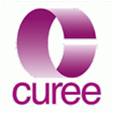Gaining and Sustaining Momentum: accelerating progress in schools
CUREE has, in collaboration with Teach First, concluded a research project continuing on from our previous work on characteristics of high-performing schools. As an extension of that project, CUREE has spent a year exploring characteristics shared by schools which are struggling to establish and/or continue momentum in their progress towards reaching high-performing status, and investigating how these schools’ individual contexts and circumstances relate to the broader evidence base around what exactly makes schools successful in making progress.
Read more about the publication here, and Philippa's blog about the report can be found here.


